Over a half century ago, an Austrian American named Horst Rechelbacher visited India and was so bowled over by Ayurveda that he founded a hair care company based on the ancient practice — using minerals and herbs such as kukui (candlenut) and ajwain (caraway) to mango, mogra (Indian jasmine) and sea buckthorn, in formulations so potent ‘as to be called prescriptions’. That company, Aveda, founded in 1978, generated sales of $1.1 billion last year.
Yet, despite examples like Aveda and India’s OG Forest Essentials, which launched in 2000, Ayurveda beauty never quite caught on globally. Unlike Korean beauty, aka K-beauty, which took the world by storm in the past decade and is today valued at $100 billion worldwide, A-beauty is valued between $8 and $9 billion, according to research firm Verified Market Research (VMR).
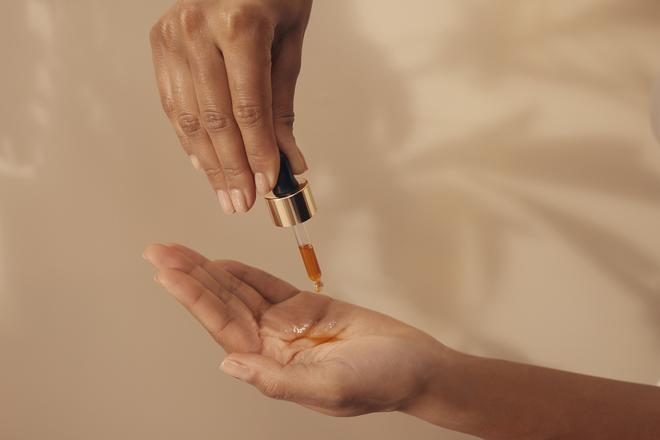
Things are, however, changing. A recent proliferation of Ayurveda brands — at a time when western audiences are paying attention to prevention and wellness — suggests a growing popularity for traditional Indian beauty. Among them are Fable & Mane, Sahajan, Purearth, Subtle Energies, Ranavat, Aavrani, indē wild, Soma Ayurvedic, Ras Oils, and Sova, to name a few. E-commerce company Nykaa recently forayed into the space with the launch of Nyveda, an Ayurveda beauty and wellness brand. Pioneers Forest Essentials and Kama Ayurveda boast investments from beauty juggernauts such as Estée Lauder and Puig, respectively. And recently, The Ayurveda Experience, a skincare and nutrition brand founded in 2010 by Rishabh Chopra, raised $27 million in a new round of funding backed by, among others, a Singapore-based venture capital firm.
VMR now estimates that Ayurveda’s share of the current $646 billion global beauty and personal care market will reach $21.1 billion by 2028.
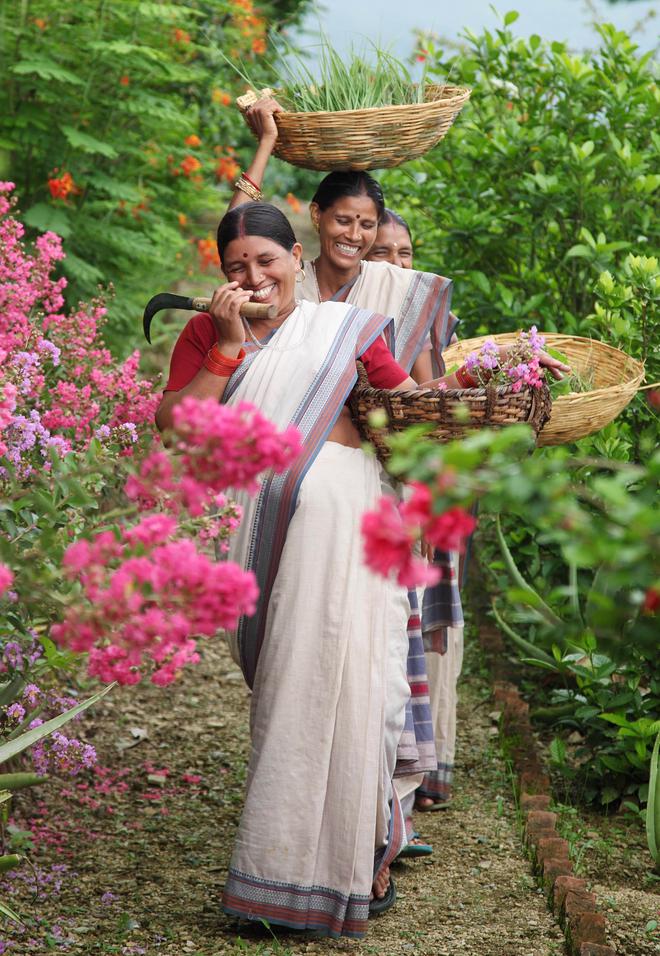

“K-beauty is based on perfect skin. Ayurveda, on the other hand, takes into account how you feel from within, holistically. It is a much more complete way of looking at oneself. In its true form, it is about fresh, untainted ingredients that give extraordinary results.”Mira KulkarniFounder, Forest Essentials
Potions to luxe formulations
Ayurveda isn’t the easiest system of traditional medicine to practise. With treatments tailored to each individual — based on their unique body compositions or doshas (vata, pitta and kapha: energies governed by air, water, fire and earth) — it is often alienating to those unfamiliar with it. Its reputation for potions with unpalatable smells and poor shelf life also stands in its way, as does modern science’s scepticism. That said, the ‘lack of evidence’ claims of Ayurveda’s efficacy are being challenged by some, observes Dr. Ipsita Chatterjee, a Delhi-based Ayurveda beauty and wellness expert, adding “institutions like [Ministry of Ayush’s] Central Council for Research in Ayurvedic Sciences have validated this through rigorous clinical trials”.

“Doctors of classical Ayurveda do not approve of commercialising Ayurveda. This is a life science developed over 5,000 years ago to maintain positive health. You can’t apply something topically and think your skin will improve. You have to correct your doshas, maintain optimum physical and mental levels, and take internal medicine. But what this trend is doing is help disseminate the concept of Ayurveda to more people, which will not happen through the prescription of traditional kashayas and arishtas [potions]. So, that is a benefit.”Dr. BalamuruganAssistant Medical Officer, Arignar Anna Government Hospital of Indian Medicine, Chennai
Over the past five years, Indian brands — which have taken traditional ingredients and repackaged them into easy-to-use formulations with modern skincare technologies — are helping update its wellness promises. “Pure Ayurveda is about medicinal oils; it’s mostly used only for internal medicine,” explains Rajshree Pathy, entrepreneur, art collector and one of Kama Ayurveda’s co-founders, who has since exited the company. “But to keep Ayurveda relevant [for today’s time], it is important to experiment with traditional herbs and combine them with other botanicals to get the result we want. It is necessary to use established extractions and format them differently.” Next month, Coimbatore-based Pathy is launching Qi Ayurveda, a new brand that claims to integrate centuries-old traditions with cutting-edge Swiss technology.
Contemporary branding and entertaining social media marketing have made them more appealing and accessible, too. According to market intelligence agency Mintel, Indian brands account for half of global product launches for hair care and skincare today. “Far from diluting Ayurveda, these brands are pivotal in elevating its global stature by intertwining traditional ingredients with modern advancements,” says Dr. Chatterjee. “However, it is crucial to recognise that amid this wave of enthusiasm, not all brands possess a deep understanding of Ayurvedic principles. This underscores the importance of discernment and education among consumers.”
Blind faith is, of course, not encouraged. Wellness author and beauty expert Vasudha Rai uses A-beauty products for her hair, including Kama’s bringadi hair oil and Anahata Organic’s hair cleansing powder. But she avoids Ayurveda facial oils in the summer due to breakouts. “It’s easy to say that our grandmothers used this so it must be good. But your grandmother didn’t use a phone the way we do, or have this stress and pollution,” she says. “There are variables in everything. Don’t blindly believe in something just because it has a traditional tag, just like you wouldn’t in something with a cosmeceutical tag.”

Targeting western markets
A-beauty’s popularity is also coming from brands founded in strong diaspora markets such as the U.K. and the U.S. Fable & Mane, founded in London in 2020, was the first South Asian-owned hair care brand to stock at Sephora. “Whenever I would go to the U.S., I would go to Sephora. And I would see brands from Japan, Korea, Brazil, but nothing from India,” says Akash Mehta, the brand’s CEO. Alongside his sister Nikita, he developed an Ayurveda-based hair care line.
The siblings, both of whom have a background in fragrance and beauty, pitched the concept to the French multinational retailer of beauty products. Today, Fable & Mane products, which are manufactured in the U.S. with ingredients sourced from India, retail in 700 Sephora stores in the U.S., Canada, the U.K. and Europe, as well as Selfridges in London. “In the past four years, Ayurveda’s popularity has grown dramatically,” says Mehta. He notes that retailers in the West are getting pitched daily by Ayurveda brands, and that the press is increasingly covering the space. While he does not disclose numbers, he adds that the brand has expanded from a small base to double digit growth in just a few years.

“A lot of consumers connect to Ayurveda through their own cultures. For example, a Korean will say, ‘I had a similar thing [herbal remedy] with my grandmother’ or someone from Italy will draw parallels with their own traditional beauty. It is nice to see that.”Akash MehtaCo-founder, Fable & Mane
Mehta’s belief in the segment also led him to invest in indē wild, another A-beauty brand. Founded in 2021 by Diipa Büller-Khosla, an influencer based between Mumbai and Amsterdam — who cites her childhood experience with acne that her mother, an Ayurveda doctor and dermatologist, cured — indē wild’s pitch is combining Ayurvedic principles with conscious chemistry. Khosla calls this “Ayurvedistry, for the consumer who loves ancient culture alongside science”.
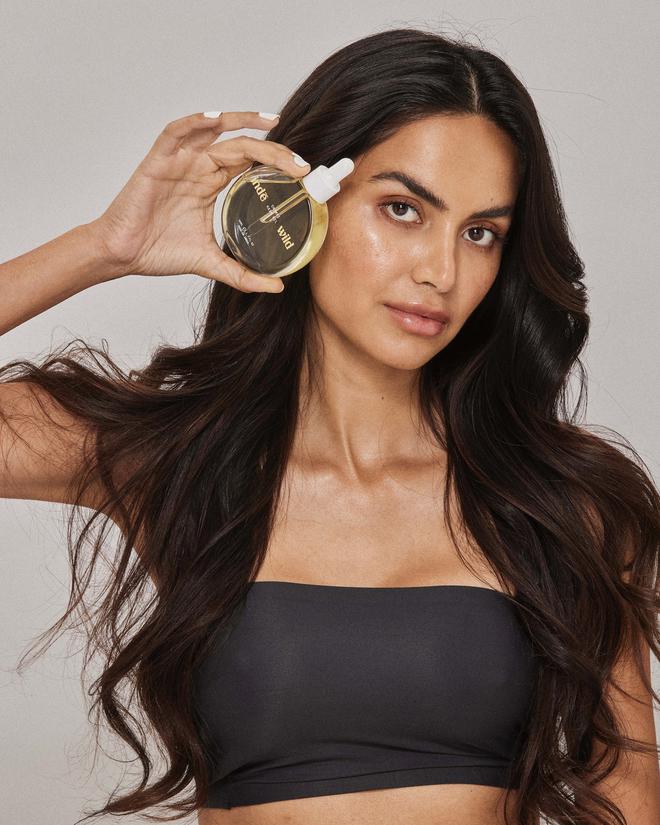
During her research, Khosla found a gap in the market. “Nobody was really catering to the young TikTok generation that wants to experience heritage but also feel like themselves,” she says. Referring to brands such as Sol de Janeiro, inspired by Brazil, and Tatcha, she hopes indē wild will be that kind of hip A-beauty brand from India. Khosla’s mother is involved in product formulation alongside a lead scientist who was formerly with Estée Lauder, as well as a team of other experts. Its recently-launched lip balm sold out on Tira, Reliance Retail’s beauty platform, and across indē wild’s website within two days.
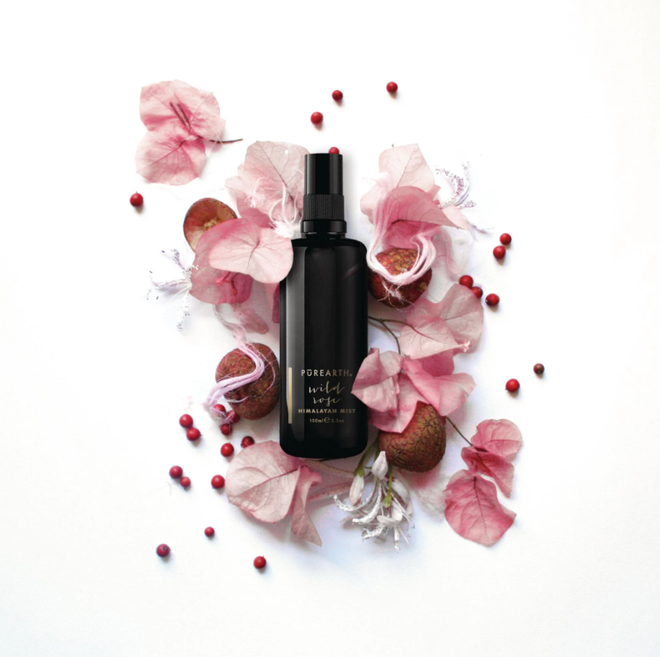

“This is the second coming for Ayurveda. With the confluence of yoga’s popularity over the past 30 years, the interest in wellness post COVID, and the growing awareness of Ayurveda, people have started looking at it as a serious science.”Chintan Gandhi, MD, Mumbai-based Millennium Herbal CareIt manufactures luxury Ayurveda beauty and wellness products, including its own brand, Sova
‘Exciting time for Ayurveda’
Before Kavita Khosa, a lawyer-turned-yoga practitioner, founded Purearth, an Ayurveda beauty and wellness brand, in Hong Kong in 2012, she spent a lot of time travelling across North India to understand the region’s biodiversity. Today, Purearth sources key ingredients such as rosehip pods (kujja) from Himachal Pradesh — ‘handpicked from soil irrigated by glaciers’ as the brand’s literature boasts — to produce its award-winning Wild Rosehip Supercritical Oil.
“This is an exciting time for Ayurveda,” she says. “Post COVID-19, people want to hark back to tradition, and indigenous knowledge on health is what they value.” Purearth, which is sold at Hong Kong’s Lane Crawford, as well as in Germany, France and the U.K., does well among the Chinese, despite the prevalence of traditional Chinese medicine and beauty. “The reception is amazing, even in Mainland China where there is interest and desire to learn about Ayurveda,” Khosa adds. The brand is set to open its first retail space in India at the Dhan Mill compound in Delhi.
Meanwhile, four-year-old Los Angeles-based Soma Ayurveda, whose products are regularly written up in U.S. magazines such as W and Vanity Fair, is a darling of Hollywood celebrities and models like Adriana Lima. Last year, its Mysur Sandalwood won Allure magazine’s Best Perfume Oil. “We are trying to put Indian skin and fragrance on the map because we have the best raw materials in the country and also the best formulations, processes and finished products,” says founder Arjun Sampath.
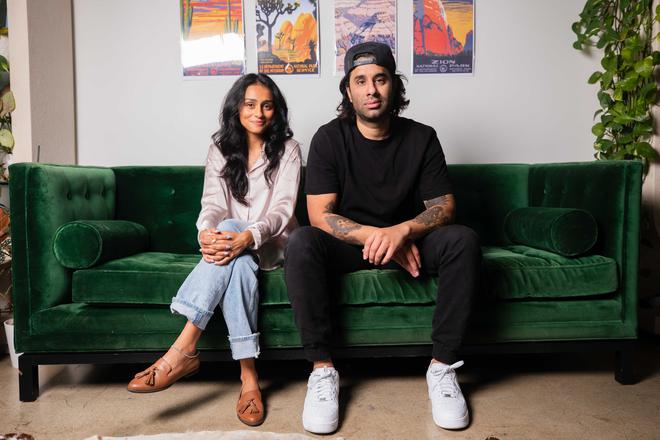
A former consultant to Nestlé Foods and Red Bull, he says it was Ayurveda that helped alleviate his skin allergies — using a neti pot, adding turmeric, ginger and cloves to his diet, and replacing all chemical-based skincare in favour of Ayurvedic products — which is why he decided to share its benefits with the world. “I wanted to introduce it in a non-intimidating, consumer-friendly way. You can’t tell an American woman to memorise her dosha or give her some complicated Sanskrit words because then you’ve lost her. I wanted to create accessible, luxurious Ayurveda.”
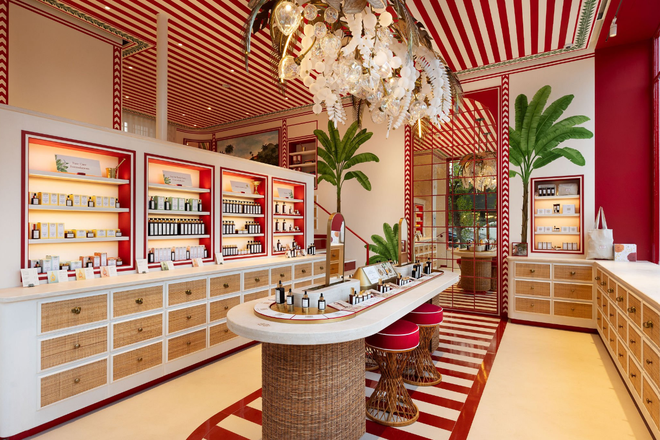
Not everyone is a convert
There will always be two schools of thought, says Dr. Sharad Kulkarni, a Bengaluru-based Ayurveda consultant and author. “The first school believes that unless the rules of the ancient science are followed to the letter, it isn’t authentic Ayurveda. But everything evolves and adapts, and if the new formulations and technologies that Ayurveda is experimenting with are effective [with evidence-based research], what’s wrong in it?” he asks.
Both Forest Essentials and Kama Ayurveda, which launched in the early aughts, deserve credit for spreading the gospel of A-beauty. Today, both have a strong retail presence within India and in marquee overseas markets such as London. “People are now familiar with terms like kumkumadi and ashwagandha,” says Vivek Sahni, Kama’s co-founder and chairman, who launched the brand’s first U.K. store last year at Notting Hill. “There is a huge amount of knowledge, especially among younger people across the world, as to what they are putting on their body, which is helping A-beauty.”
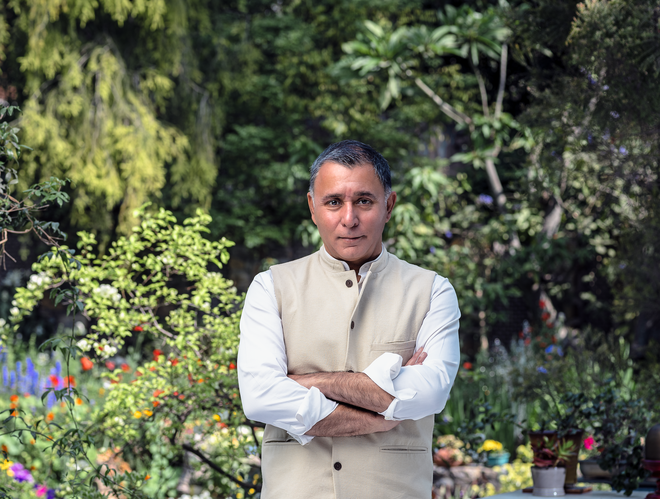
Now, A-beauty’s growing popularity is not only being driven by Birkenstock-wearing, nature-loving people but also the ultra high net worth consumers. Vasudha Ruia, of the Essar family, says she gave up chemical-based beauty products in favour of vegan, natural, Ayurveda brands a few years ago. “I became aware of all the animal testing and decided to go for clean beauty. It is better for us and for the planet!”
Another big boost to the industry is coming from global hotel chains and spas, which are increasingly stocking such brands. Sahajan, a skincare brand combining Ayurveda with clinical science, is placed in luxury hotel rooms of the St. Regis, The Ritz, J.W. Marriott, and W hotels. Subtle Energies, the Australia-based Ayurveda wellness company, is at hotel spas within the Peninsula, Six Senses, Soneva, Mandarin Oriental, Raffles, Four Seasons and the Taj.
It wouldn’t be amiss to say 2024 could well be the year Ayurveda comes of age across world markets.
The writer is a Mumbai-based journalist and author.







